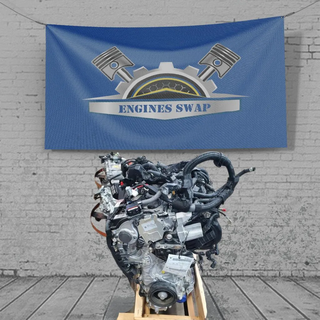Used Engine Buying Guide
Used Engine Buying Guide
Blog Article
Purchasing a used motor engines for sale can be a cost-effective strategy to extend lifespan of your vehicle, however it requires careful consideration to ensure you get a trusted used engine and efficient product. Below is really a comprehensive guide on what to consider when buying a used engine.
1. Determine Your Needs
Before starting your research, clearly identify the particular engine requirements for your vehicle:
Make and Model Compatibility: Ensure the engine matches your vehicle’s make, model, and year.
Engine Specifications: Verify the engine size, type, as well as any specific features required.
2. Source Reputation
Choosing a professional source is vital for purchasing a quality used engine:
Dealerships and Professional Mechanics: Often provide more reliable options and might offer warranties. You can also check enginesswap they supply good quality engines as well as assured warranty
Auto parts store : Can be a good source but look for the engine’s condition thoroughly. BluePrism Automotive is but one
3. Engine History
Understanding the history of the engine helps assess its potential lifespan:
Mileage: Lower mileage can often mean less deterioration.
Maintenance Records: Look for engines with detailed service histories.
Reason for Removal: Know why the engine was taken out of the original vehicle.
4. Physical Inspection
A thorough inspection can reveal a whole lot about the engine’s condition:
Visual Check: Look for signs and symptoms of damage, rust, or leaks.
Compression Test: Ensures the engine maintains adequate pressure.
Oil Condition: Check the oil for contamination or unusual color.
5. Engine Warranty
A warranty provides comfort and protection against future issues:
Duration and Coverage: Understand the length from the warranty and what parts or issues are covered.
Source of Warranty: Prefer warranties from reputable dealers or manufacturers.
6. Compatibility and Fitment
Ensure the used engine will fit and be employed in your vehicle without extensive modifications:
Engine Mounts: Confirm the engine mounts align with your motor vehicle.
Electronic Compatibility: Verify the engine’s electronics and sensors are compatible with your motor vehicle’s system.
Transmission Match: Ensure the engine is compatible together with your transmission type.
7. Cost Analysis
Analyze the cost in the used engine and compare it along with other options:
Price: Ensure the cost is reasonable and competitive.
Installation Costs: Factor in the cost of professional installation.
Potential Repairs: Consider any extra costs for parts or repairs.
8. Seller’s Return Policy
Understand the seller’s return policy if your engine just isn't as described or doesn’t fit:
Return Window: Check just how long you have to return the engine.
Restocking Fees: Be aware of any fees connected with returning the engine.
Condition for Return: Ensure you understand the condition requirements to get a return.
9. Vehicle Identification Number (VIN)
Checking the VIN offers additional assurance:
Match VIN: Ensure the engine VIN matches your automobile’s requirements.
Vehicle History Report: Use the VIN to obtain a history report of the engine’s original vehicle.
10. Professional Assistance
Consider getting specialist to make an educated decision:
Mechanic’s Opinion: A mechanic provides an expert opinion for the engine’s condition and compatibility.
Engine Diagnostics: Have a professional run diagnostics to check for potential issues.
Purchasing a used engine available involves an in depth process to ensure you get a dependable and efficient replacement. By with the factors outlined above, you can make a knowledgeable decision that balances cost with quality and longevity. Always prioritize sourcing from reputable sellers and verifying the engine’s background condition prior to a purchase.